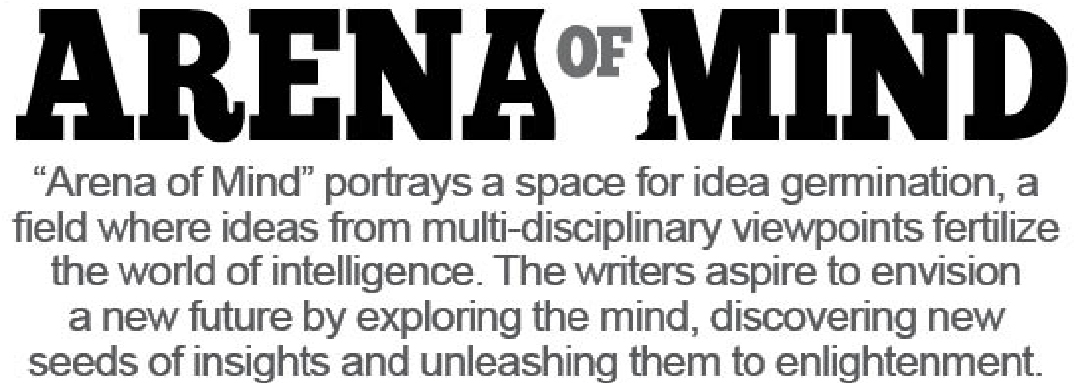1

Dr Fr George Keduolhou Dzeyie
Vice Principal (Students Affairs)
St. Joseph’s College (Autonomous), Jakhama– Kohima
“If a man is interested in himself only, he is very small; if he is interested in his family, he is larger; if he is interested in his community, he is larger still” (Aristotle). Where ever we live and work and where ever we go, somehow we meet people who are leaders in different capacities and spheres of life. We also encounter people who aspire to be leaders, which is natural and motivational. We have good knowledge of true leaders and false leaders. We know who are good leaders and the not so good leaders. When we talk of Naga leadership, our mind spins immediately to someone who is rich, popular, and influential. But we know that leadership is not limited to being popular, important, rich, and influential. We need leaders who go beyond popularity, richness and influential syndromes. Our society still yearns for and silently cries for intellectual leaders with vision and leadership with a sense of responsibility and commitment.
For the Nagas in Nagaland, the slogan still echoes “We need leaders; we want leaders; give us leaders” although we have leaders on the thrones. It is true that we can’t have perfect leaders but we need true and good leaders. We need leaders and “Leadership with responsibility”. There is an urgency to identify and produce intellectuals and thinkers as leaders in our society. In this line of thought it is pertinent that the educational institutions and Government educational departments have huge role to play. The intellectuals, scholars, thinkers, and rationalists holding the chairs in the Universities: the academicians and think-tank faculty teams of the Colleges need to form and act as the brain and sign posts of our present and future society. Development and progress will set in only when we have great thinkers as leaders having far sighted visions. Some of the inevitable qualities that we need to identify today in our leaders in our society are: (1) Technical skills: Leaders who possess ability to use knowledge, methods and techniques and equipments to guide and lead. (2) Human skills: Leaders with the ability to work with and through people. (3) Conceptual skills: Leaders with the ability to understand the sitz-im-leben of the society and its complexities and are bold to take the risks to bring change.
When APJ Abdul Kalam was elected as the president of India, he brought honour and respect to India. He brought dignity to Indian politicians. As a Scientist, he ignited the minds of the young. India was much safer in the hands of a scholar and a scientist like him. In the same way, Nagas in Nagaland can be much safer in the hands of scholars and intellectuals rather than the rich and the influential. May be, what we need to cultivate in ourselves and in our societal systems is the culture of hard work and consistency. Today many Naga youths have built up the culture and trend of hard work but the rate needs to increase. In fact the Nagas need to begin to boast of themselves as “hard working people” and not just continue to glory in the age long name plate “honesty and hospitality.” The challenge before the upcoming Naga leaders is “Be Daredevils to achieve and take the society to a higher ground.”
If we minimize criticizing the present leaders and silently work hard to be better leaders tomorrow then today’s leaders may get worried and even experience hiccups because we act wise today. It is true that due to constraints and impossibilities, we may not have voice today, but with confidence in ourselves, confidence in others, confidence in the cause, and confidence in God’s promise of assistance, we can and will act wiser tomorrow. It was Albert Eistein who said, “More the knowledge, lesser the ego, lesser the knowledge more the ego.” To be a responsible and committed leader today and tomorrow, we need more of knowledge and less of ego. The underlying problem of unemployable educated can be traced to the mentality of mediocre and average learning. Under Graduate Degree or Post Graduate Degree with very little practical, professional and specialized skills generate less of knowledge and more of ego. This trend is risky and catastrophic to the society. For the modern young generation, the axiom “Slow and steady wins the race” may appear obsolete but in certain context it still holds good, relevant, true and alive. Nagas are quick, creative and innovative in learning but lacks consistency and patience. We have the tendency for quick and big catch which leads to discouragement, distress and ultimately failure. A good and prudent future leader is one who is willing to let ideas ripen, plan adequately and execute efficiently. We are good at decision-making but extremely poor at consistency. The siren call today is to be out in the front with good examples, conduct, habits, character, and relationship; the challenge to be men and women of integrity. What is our observation and opinion about the leaders in our state? What are the leadership qualities we find in ourselves? What are the effective qualities we would like to add to our leadership style? What are our strategic plans as leaders? What are we going to contribute to the society as leaders?






